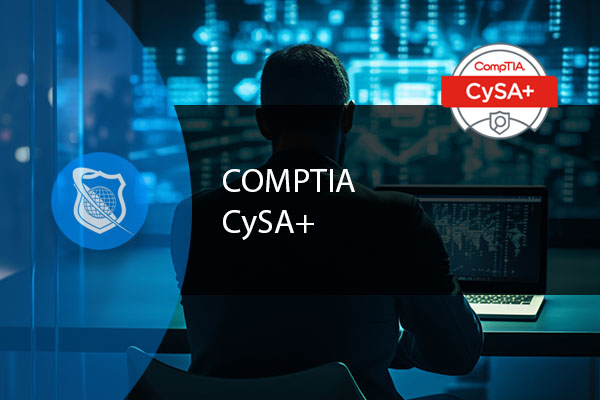What Is Adaptive Encryption?
Adaptive Encryption is an advanced security measure that dynamically adjusts its encryption methods and strength based on the perceived level of threat and the type of data being protected. This

Welcome to the ever-evolving battlefield of cybersecurity, where the role of a SOC Analyst stands as a vital sentinel in the protection of information assets. In this detailed exploration, we shed light on the SOC Analyst’s duties, the cybersecurity salary landscape, and the skills necessary to excel in this high-demand career. Whether you’re considering a path in cyber defense or simply curious about what a day in the life of a SOC Analyst entails, join us as we delve into the intricacies of this crucial occupation.
A SOC Analyst, holding a pivotal role in the cybersecurity salary bracket, is at the heart of a Security Operations Center (SOC), the nerve center for cyber security operations. They ensure the IT cyber security salary reflects the demanding and skilled nature of the job. Below are their typical duties, interwoven with LSI and clustered keywords for a richer description:

An Information Security Analyst plays a pivotal role in safeguarding an organization’s digital infrastructure and sensitive data. This job involves a blend of technical expertise, vigilance, and continuous learning to protect against ever-evolving cyber threats.
Entry-Level SOC Analyst (Level 1): An entry-level SOC Analyst, often referred to as a Level 1 SOC Analyst, is typically someone who has recently graduated or has equivalent experience in the field. This role involves monitoring network security events, managing alerts, and responding to basic security incidents.
Mid-Level SOC Analyst (Level 2): A mid-level SOC Analyst, or Level 2, typically has a few years of experience and takes on more complex tasks such as detailed incident analysis, conducting threat hunting, and participating in developing incident response strategies.
Senior-Level SOC Analyst (Level 3): Senior SOC Analysts, or Level 3, are usually highly experienced with deep expertise in incident response, threat intelligence, and often take a lead role in managing cybersecurity incidents. They may also mentor junior analysts and contribute strategically to the SOC’s operations.
Specialized Roles and Management: Beyond the tiered structure, there are specialized SOC roles such as SOC Managers, Cyber Threat Intelligence Analysts, and SOC Architects. These positions typically come with higher responsibilities and correspondingly higher salaries.
Conclusion: The cybersecurity field, and specifically the SOC Analyst career path, presents a promising financial trajectory for those entering the field. With the rise in cyber threats, the value placed on skilled cybersecurity professionals continues to grow, as reflected in the competitive salary ranges across different levels. For those with a passion for IT security and the drive to continually develop their skills, the investment in becoming a SOC Analyst can yield significant financial rewards over time.
Our robust CompTIA Sec+ course is the perfect resouce to ensure your company’s most valuable assets are safe. Up your security skills with this comprehensive course at an exceptional price.
To become a successful Security Operations Center (SOC) Analyst, one must possess a unique blend of formal education, specialized certifications, and a set of technical and soft skills. These qualifications enable analysts to effectively monitor, detect, investigate, and respond to cybersecurity threats.
Educational Background:
Certifications: Certifications play a crucial role in the cybersecurity industry, often serving as a benchmark for skills and knowledge.

Ready to fortify digital landscapes? Unleash your potential with our CySA+ course. Master behavioral analytics, shield networks, and become a certified defender against cyber threats. Elevate your security prowess, ace the CompTIA CySA+ (CS0-003) exam, and secure a resilient future for organizations
Technical Skills:
Soft Skills:
A SOC Analyst must also keep pace with the evolving cybersecurity landscape, which includes understanding of cloud security, as more organizations migrate to cloud services. Awareness of zero-trust architectures is increasingly sought after, as this proactive stance on network security gains traction. Additionally, endpoint protection and mobile security are key areas of expertise, given the proliferation of devices and the rise of remote work.
In conclusion, a career as a SOC Analyst requires a solid educational foundation, relevant certifications, and a diverse set of technical and soft skills. As cybersecurity threats grow in complexity, the industry values professionals who are not only technically adept but also possess keen analytical abilities and the aptitude for continuous learning and adaptation.
CISSP is the perfect credential for those with advanced technical and managerial skills, experience, and credibility to design, implement, and manage an information security program that can protect organizations from sophisticated attacks.
Cybersecurity job titles vary, and so do the opportunities for growth. Starting as a SOC Analyst could lead to roles like a threat monitoring SOC analyst or even a SOC security analyst, which often come with a higher cybersecurity average salary and more responsibilities. Your career in cyber security could further progress to positions like a SOC Manager, which is among the highest paying cyber security jobs.
Working in a SOC can be both challenging and rewarding. The SOC job description involves staying ahead of cybercriminals, which requires constant learning and adaptation. The reward comes not just in the form of a cybersecurity pay that reflects the importance of the role, but also in the satisfaction of knowing your work directly contributes to safeguarding your organization’s digital integrity.
As cyber threats grow more sophisticated by the day, the role of the SOC Analyst becomes increasingly critical. It’s a career characterized by constant learning, vigilance, and the opportunity to be at the forefront of technological innovation. For those passionate about IT security and looking for a rewarding career both intellectually and financially, becoming a SOC Analyst could be the perfect fit.
Understanding the terminology used in the field of Security Operations Center (SOC) is essential for anyone aspiring to work as a SOC Analyst or those currently in the role. SOC Analysts are at the forefront of cybersecurity defenses, monitoring, analyzing, and responding to cyber threats and incidents. Their work is critical in protecting organizations’ information systems and data from cyberattacks. The vocabulary used in this domain is vast and specialized, encompassing a wide range of tools, techniques, threats, and procedures. Familiarity with these terms not only facilitates effective communication within the cybersecurity community but also enhances the analyst’s ability to understand and respond to complex security issues. Below is a list of key terms and definitions that are fundamental to the work of a SOC Analyst.
| Term | Definition |
|---|---|
| SIEM (Security Information and Event Management) | A software solution that aggregates and analyzes activity from many different resources across your IT infrastructure to identify potential security threats. |
| Threat Intelligence | Information that is used to understand the threats that have, will, or are currently targeting the organization. This information is used to prepare, prevent, and identify cyber threats looking to take advantage of valuable resources. |
| Incident Response | A methodology for handling security breaches or cyberattacks, including the processes to detect, investigate, and respond to the incident. |
| Indicator of Compromise (IoC) | Artifacts observed on a network or in an operating system that with high confidence indicate a computer intrusion. |
| Firewall | A network security device that monitors and filters incoming and outgoing network traffic based on an organization’s previously established security policies. |
| Intrusion Detection System (IDS) | A device or software application that monitors a network or systems for malicious activity or policy violations. |
| Intrusion Prevention System (IPS) | A form of network security that works to detect and prevent identified threats. IPSs continuously monitor your network, looking for possible malicious incidents and capturing information about them. |
| Vulnerability Assessment | The process of identifying, quantifying, and prioritizing (or ranking) the vulnerabilities in a system. |
| Penetration Testing | An authorized simulated cyberattack on a computer system, performed to evaluate the security of the system. |
| Endpoint Detection and Response (EDR) | A cybersecurity technology that addresses the need for continuous monitoring and response to advanced threats. It is a solution that records and stores endpoint-system-level behaviors, uses various data analytics techniques to detect suspicious system behavior, provides contextual information, blocks malicious activity, and provides remediation suggestions to restore affected systems. |
| Phishing | A cybercrime in which a target or targets are contacted by email, telephone, or text message by someone posing as a legitimate institution to lure individuals into providing sensitive data such as personally identifiable information, banking and credit card details, and passwords. |
| Ransomware | A type of malicious software designed to block access to a computer system until a sum of money is paid. |
| Zero-Day Exploit | A cyberattack that occurs on the same day a weakness is discovered in software. At that point, it is exploited before a fix becomes available from its creator. |
| Malware | Software that is specifically designed to disrupt, damage, or gain unauthorized access to a computer system. |
| DDoS Attack (Distributed Denial of Service Attack) | An attempt to make an online service unavailable by overwhelming it with traffic from multiple sources. |
| SOC (Security Operations Center) | A centralized unit that deals with security issues on an organizational and technical level. |
| Cybersecurity Framework | A series of documented processes that are used to guide information security policies, procedures, and practices within an organization. |
| Encryption | The process of converting information or data into a code, especially to prevent unauthorized access. |
| Network Security | The practice of preventing and protecting against unauthorized intrusion into corporate networks. |
| Security Policy | A written document in an organization outlining how to protect the company from threats, including computer security threats, and how to handle situations when they do occur. |
| Advanced Persistent Threat (APT) | A prolonged and targeted cyberattack in which an intruder gains access to a network and remains undetected for an extended period. |
| Security Awareness Training | Education for employees about the various ways in which communications and data can be compromised and how to mitigate these risks. |
| Patch Management | The process of distributing and applying updates to software. These patches are often necessary to correct errors (known as vulnerabilities) in the software. |
| Compliance | The act of adhering to, and demonstrating adherence to, external laws and regulations as well as corporate policies and procedures. |
This list covers the foundational terms any SOC Analyst should be familiar with to effectively communicate and operate within the field of cybersecurity.
A SOC Analyst, or Security Operations Center Analyst, is a cybersecurity professional who works within a team to monitor and analyze an organization’s security posture on an ongoing basis. Their primary role is to detect, investigate, and respond to cyber threats.
A typical day for a SOC Analyst involves reviewing alerts from SIEM (Security Information and Event Management) systems, analyzing network traffic, investigating anomalies, responding to incidents, and documenting their findings. They may also participate in developing incident response protocols and updating the organization’s threat intelligence.
To become a SOC Analyst, one typically needs a bachelor’s degree in a field related to cybersecurity, such as Information Technology or Computer Science, and possibly certifications like CompTIA Security+, CEH, or CISSP. Technical skills in areas such as SIEM, network security, incident response, and vulnerability management are crucial. Soft skills like analytical thinking, problem-solving, and effective communication are also important.
Yes, there are typically several levels, ranging from Level 1, which is entry-level, to more senior positions like Level 3 or SOC Analyst Team Lead. As analysts progress through levels, they take on more complex tasks, lead incident response efforts, and may be involved in strategic security planning.
The job outlook for SOC Analysts is very positive. With an increasing number of cyber attacks and a growing emphasis on data protection, the demand for skilled cybersecurity professionals is high. SOC Analyst roles are expanding in both scope and number across various industries, reflecting the critical need for cyber defense capabilities.
Lorem ipsum dolor sit amet, consectetur adipiscing elit. Ut elit tellus, luctus nec ullamcorper mattis, pulvinar dapibus leo.
$49.99 Original price was: $49.99.$16.99Current price is: $16.99. / month with a 10-day free trial
Adaptive Encryption is an advanced security measure that dynamically adjusts its encryption methods and strength based on the perceived level of threat and the type of data being protected. This
Address Resolution Protocol (ARP) is a fundamental protocol used in the Internet Protocol (IP) networking realm. Its primary function is to map or resolve IP addresses to the physical machine
Advanced Driver-Assistance Systems (ADAS) are electronic systems in vehicles designed to enhance vehicle safety and aid the driver in the driving process. These systems use a variety of sensors, such
Agile Development Practices encompass a set of methodologies and principles aimed at improving the efficiency, flexibility, and adaptability of the software development process. These practices are designed to foster collaboration
Agile Requirements Engineering is a crucial discipline within software development and project management that focuses on the continuous identification, documentation, and management of the requirements for a project in an
Agile Testing is a software testing process that follows the principles of agile software development. It is an iterative testing process that is part of the development lifecycle, emphasizing flexibility,
Air-gap security is a network security measure that involves isolating a computer or network from external networks, including the internet and local area networks (LANs). This isolation is achieved physically,
Algorithmic Complexity Theory, often synonymous with Computational Complexity Theory, delves into the study of computational problems with respect to the resources they require for their solution. This theory categorizes problems
Ambient Intelligence (AmI) refers to electronic environments that are sensitive and responsive to the presence of people. This concept combines several key technologies, including IoT (Internet of Things), sensor technology,
Electronic components are the building blocks of electronic circuits; they are the individual pieces that, when combined, create the functionality of electronic devices. These components can be classified broadly into
Netmask, short for network mask, is a term used in computer networking to specify the division of IP addresses into network address and host address parts. It’s a fundamental concept
Computational complexity is a fundamental concept within computer science and mathematics, focusing on the study of the resources required to solve computational problems. This field categorizes problems based on their
ENDING THIS WEEKEND: Train for LIFE at our lowest price. Buy once and never have to pay for IT Training Again.

Get ready for the updated 220-1201 & 220-1202 exams with our brand-new CompTIA A+ training—designed to help you pass with confidence and start your IT career strong. Access this course and over 2,900 hours of expert-led IT training when you sign up for any of our All-Access Passes. Don’t miss out—enroll now and start learning today!